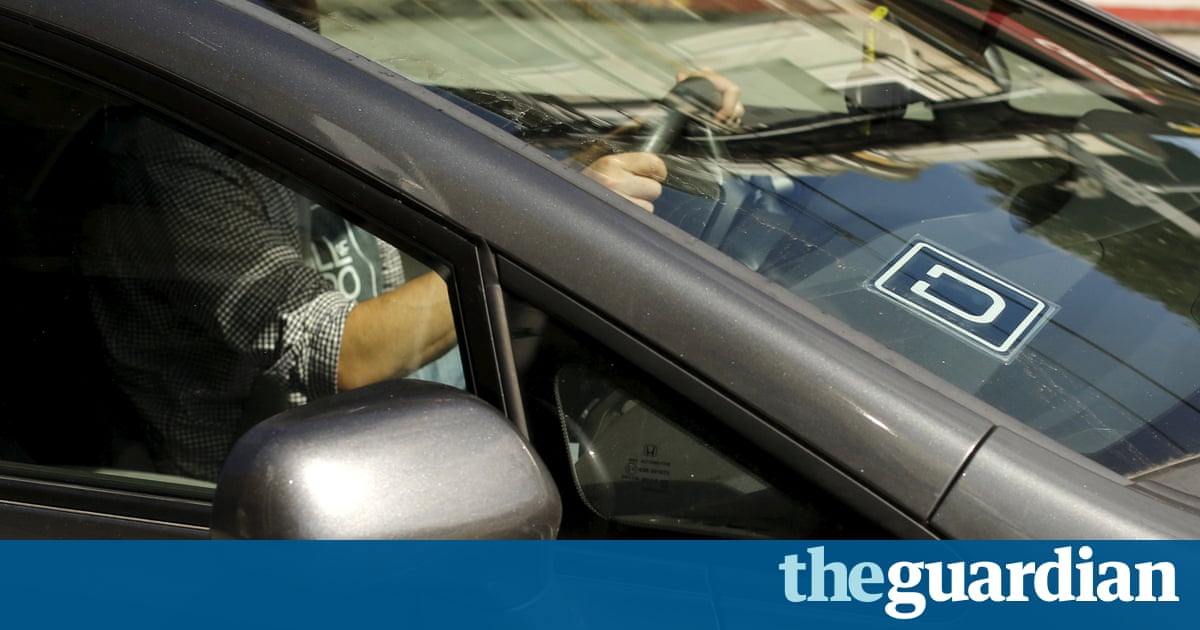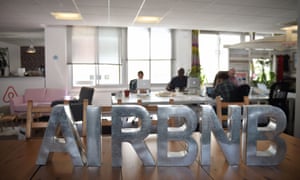The future: where borrowing is the norm and ownership is luxury

Turn any idle asset into a productive piece of capital. All you have to do is set a price, and the robots will take care of the rest. What could possibly go wrong?

Imagine life without ownership. You own nothing. You rent everything. You do this because its cheaper: you pay pennies or fractions of pennies per day to have a bed to sleep in, or a winter coat to keep you warm. You scale up or down as needed: maybe your partner moves in, so you swap your single bed for a queen, or winter ends, so you return your coat. You are always optimizing. You pay for precisely what you use, when you use it and nothing more.
This is the consummate sharing economy, and it might be closer than you think.
By now, the sharing economy is nearly a decade old. The term first surfaced sometime after 2007, the year that brought us both the iPhone and the Great Recession. The iPhone helped put the internet and GPS in peoples pockets. The Great Recession helped make them desperate and broke. These two developments dovetailed to sow the seeds of the sharing economy: consumers were looking for new ways to save, workers were looking for new ways to earn, and smartphones gave them both new ways to transact.
These days, however, the sharing economy feels a bit past its prime. After an initial wave of investor enthusiasm, a few sharing startups such as Uber and Airbnb have hit it big, but many more have fallen flat. It turns out, people are happy to pay for rooms or rides but are less thrilled about renting PlayStations or power tools. The Sharing Economy is Dead, Fast Company declared last year, summarizing a general sense of fatigue with what now feels like a wildly oversold idea.
But what if the postmortems are premature? New paradigms usually dont arrive all at once, but by fits and starts. The first phase of the sharing economy might have fizzled out, but new technologies may soon resurrect it in a far more radical form. And if they do, the result wont just be a new app for renting power tools. Itll be the biggest revolution in property ownership since the birth of capitalism.
Smart contracts
One of capitalisms core requirements is a stable property regime. Capitalism needs a reliable, enforceable record of who owns what. This means everything that is owned has several layers of lawyers, legislators, judges and police standing behind it. I own a piece of land, you trespass, I call the police. If necessary, we go to court.
The system works, but its slow. If you own real estate in the United States, its typically recorded by a county records office. If you own a car, its typically recorded by a state agency. As you might expect, these institutions involve a lot of paperwork and labor. And thats just to record the fact that you own something. Actually enforcing ownership requires even greater quantities of paperwork and labor, from the sheriff who carries out the eviction notice to the repo man who tows away your car because youre late on your payments.
The high fixed costs of the traditional property regime presents the sharing economy with certain challenges. Lets say instead of buying a house, you want to buy the right to use a house for a night. Or instead of buying a car, you want to buy the right to use a car for an hour. The official system isnt set up for that. So sharing companies end up keeping that information themselves: a database at Airbnb or Zipcar holds the record of your rental instead of the government. But these databases require plenty of labor of their own to build and maintain, and they dont scale easily to a wider range of assets. Any attempt to expand the sharing economy runs up against the same problem: how do you record and enforce who owns what when the thing being owned is so granular and fast-moving?
A blockchain is very precisely designed to solve that problem, Steve Randy Waldman tells me. A programmer, blockchain expert and widely known economics blogger, Waldman is the rare technical specialist who is used to talking to a non-technical crowd. He knows that blockchain is one of those words that confuse and intimidate people, so he explains it as simply as he can. Its a different way of keeping track of a normative set of information, he says. Instead of storing the information in one central location the county records office, say, or Airbnbs database blockchain makes multiple copies and distributes them across all the nodes of a network.

These nodes dont have to be people. They can be things. This is what makes blockchain such a potentially powerful accelerant of the sharing economy: it gives property the ability to know who its owner is. Anything with an internet connection can hook up to a blockchain, which means anything with an internet connection can have a perfect record of who owns what. To return to our home rental, what if the front door knew that you had paid for the place for one night and only opened for you during that interval?
This happens to be the business model of a German startup called Slock.it, which builds smart locks that run on an advanced blockchain called Ethereum. In their demos, they present the following scenario. The homeowner posts a price for the rental. The renter sends the money through her smartphone. Inside the front door is a very small computer connected to the internet. The computer knows when the renter is allowed to enter and unlocks the door for her when she pushes a button on her phone.
The mechanism that makes this work is something called a smart contract. A smart contract is simply a computer program that performs certain actions when the right conditions are met. Think of it as a series of if-then statements. If the renter pays up, the door opens. If the rental ends, the door locks.
Whats extraordinary about a smart contract is that it gives blockchain the power to not only record property rights but enforcethem. Once deployed, a dozen lines of computer code can fulfill the same role as the county records office, the courts and the police. You can have the function of a trusted bureaucracy without the expense of putting together a trusted bureaucracy, Waldman explains. You can also cut out the middleman who extracts a fee for coordinating the transaction: theoretically, your home rental could now involve only the homeowner and the renter, bypassing Airbnb.
By automating away these expenses, smart contracts make a lot more goods shareable. Humans have always been the sharing economys weakest link. The more theyre involved, the higher the cost of each transaction. By getting rid of them, smart contracts make it extremely cheap to create and enforce agreements. The result is that it suddenly becomes practical to sell access to virtually anything.
In a talk late last year, one of Slock.its co-founders offered a few examples. Lets say you want to rent out your washing machine to the other people in your building. You could link it to a smart power switch, which would activate the machine for however many minutes a user purchases. Or you could use the same kind of switch to create an impromptu charging station for electric cars: drivers would pull up, plug into an outlet and buy your electricity.
These examples only scrape the surface of whats possible, however. In a world where property is networked and programmable, and ultra-fast micro-payments can happen automatically, and software records and enforces who owns what, the pool of possible transactions is potentially infinite. If the premise of the current sharing economy is that you can turn your car into a taxi or your house into a hotel, the premise of the next sharing economy is that you can turn any idle asset into a productive piece of capital. All you have to do is set your price, and the robots will take care of the rest. What could possibly go wrong?
Unbundling ownership
Almost 50 years ago, Philip K Dick foresaw a future filled with things that charge you for using them. The protagonist of his 1969 novel Ubik lives in a crummy apartment where everything is coin-operated the coffee machine, the fridge, even the front door. One running punchline is that hes always too broke to come up with the nickel he needs to open the door and leave his apartment. At one point he even gets into an argument with the door, which tells him that the five-cent fee is part of the contract he signed when he bought the place. When he starts unscrewing the bolt, the door threatens to sue him.
Dicks scenario is funny, frightening and may someday cease to be science fiction. Its easy to imagine how todays experiments with blockchain and internet-enabled devices might lead to a world where borrowing is the norm and ownership is a luxury. The sharing economys advocates like to talk about efficiency: why own a car, for instance, when the average American automobile gets used only 4% of the time? But the sharing economys future profits arent likely to flow merely from the things we rarely use theyll come from the things we use all the time. And it seems probable that most us wont be renting those essential items simply because were trying to be efficient. Like Dicks protagonist, well be renting them because were too poor to own them.
When I put the question to Waldman, he gives me the economists view. From a financial perspective, the way to think about ownership as opposed to renting is that if you own something, youre pre-purchasing the future services and therefore hedging the future risk of not having the use of those services, he says. When you own a door, for instance, youre pre-purchasing the continual right to open it.

Most of us dont think about it that way, of course. But we might have to, if the sharing economy succeeds in unbundling ownership into a stream of services that we purchase a minute or a millisecond at a time. That should be all gravy in a world of informed optimizers, Waldman adds. But we obviously dont live in a world of informed optimizers.
Dystopian or not, this future probably wont arrive right away. Everyone I spoke to, whether an entrepreneur or an academic or an engineer, cautioned against expecting too much too soon. Its the Precambrian age, Stephan Tual, a co-founder of Slock.it, told me. The fish dont have legs yet.
Neha Narula, the research director of the MIT Media Labs Digital Currency Initiative, agrees. This technology is still in its infancy, she said. Were still in the early days.
Currently, the biggest growing pain is security. In June, a hacker exploited a vulnerability in the Ethereum blockchain to steal $50m worth of digital money from an investment fund set up by Slock.it. Before the technology can go mainstream, these are the kind of rough edges that need to get smoothed out.
Big business is watching closely. Last year, the worlds largest financial institutions came together to form a consortium called R3 devoted to blockchain research and development. If the prospect of gigantic banks joining forces to engineer a powerful new financial weapon fails to unleash your inner Dickian paranoiac, consider this: at least one of R3s members, Toyota Financial Services, has been experimenting with a way to use blockchain to punish people who fall behind on their car payments. If you miss an installment, a smart contract kicks in and your car wont start. No pleading conversations with your lender, no fist-fights with the repo man. Just code, quietly killing your engine.
Waldman shares my queasiness about the Toyota project a shitty arrangement, he calls it but warns against technological determinism. Unlike many blockchain enthusiasts, who are prone to a soldierly faith in the righteousness of their cause, he accepts the possibility of non-utopian outcomes but stresses that there is nothing inevitable about them. The optimistic case is possible, too, he explains, and probably worth checking out.
Here is the optimistic case: blockchain could help democratize the sharing economy by making it cheaper to create and operate a platform. In a blockchained world, many of the things that a company such as Uber does to coordinate a transaction could be performed by self-executing smart contracts; others could be performed at lower cost by a variety of small competing providers. This might make it easier for workers to form cooperatives that have the capacity to compete against the VC-backed behemoths that dominate the sharing economy. Then you might get something resembling the socialized Uber proposed by economist Mike Konczal: a viable worker-owned alternative, run for the benefit of the people who actually perform the work and not for a handful of rich investors.
A cooperative commonwealth or a hypercapitalist nightmare of extortionary smart property: we might get one or the other, or even a bit of both. What seems clear is that the next phase of the sharing economy is just as likely to magnify todays inequalities as to alleviate them. As always, technologies can be put to a range of purposes: a hammer might be a murder weapon or a home improvement tool depending on who is holding it. Whether we get our head bashed in or a slightly better place to live wont be a technical question but, as always, a political one.
An earlier version of this story misspelled the name of economist Mike Konczal. This version has been corrected
Read more: https://www.theguardian.com/technology/2016/oct/17/sharing-economy-capitalism-uber-airbnb-ownership